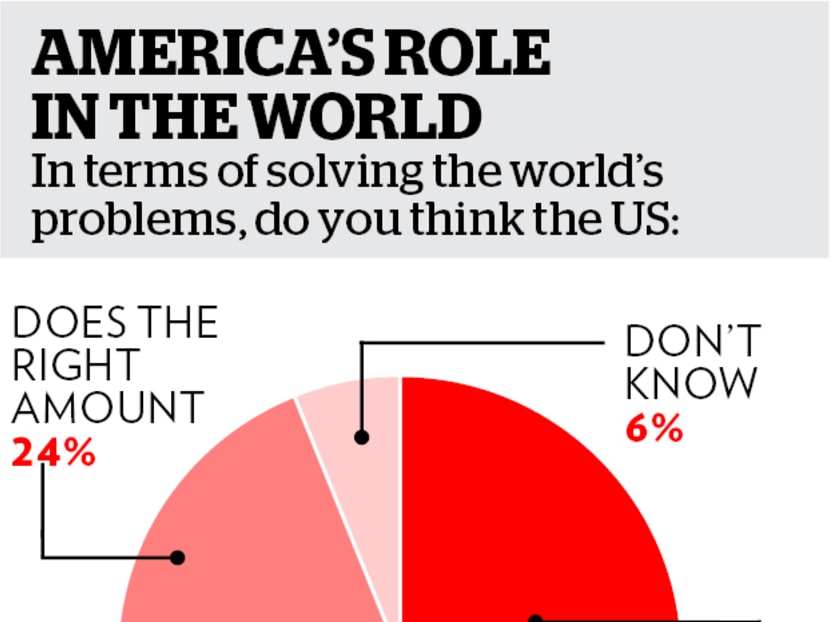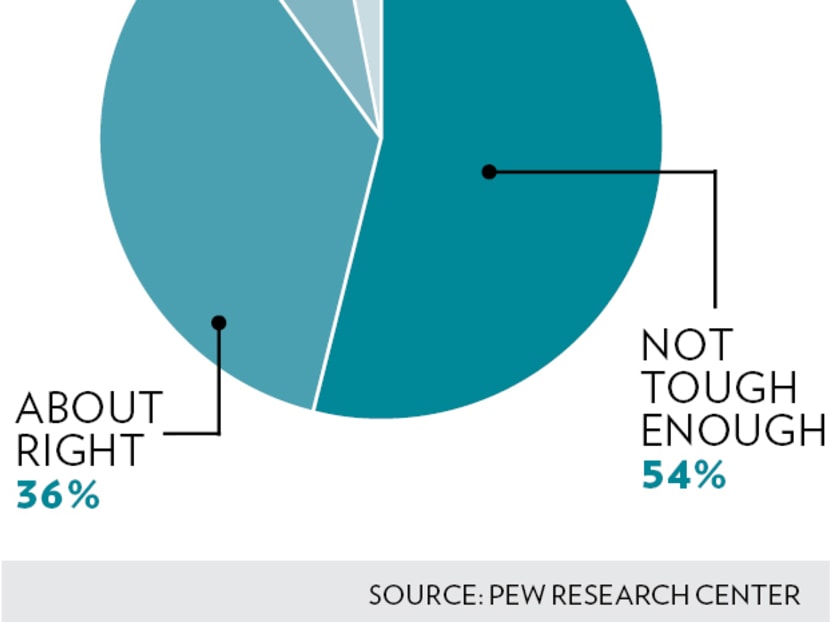More Americans back military intervention after journalists’ death
WASHINGTON — The beheading of two United States journalists is helping to establish what Syria’s chemical weapons, the aggression of Russian President Vladimir Putin and China’s military rise have failed to do — an American public more willing to accept military action abroad.



WASHINGTON — The beheading of two United States journalists is helping to establish what Syria’s chemical weapons, the aggression of Russian President Vladimir Putin and China’s military rise have failed to do — an American public more willing to accept military action abroad.
A series of opinion polls has provided the first indication of what could be a big shift in attitudes towards foreign policy from a US electorate that has been widely considered war-weary.
The gruesome images of James Foley and Steven Sotloff being killed by an Islamist militant with a British accent have galvanised public opinion in America. If the trend continues, it would make it politically easier for President Barack Obama to begin a military campaign in Syria against the Islamic State.
However, it could also have broader political implications, intensifying criticism of the President’s handling of foreign policy and changing the outlook for the election in 2016.
As the administration scrambles to develop a strategy to go after the Islamic State in Syria, Vice-President Joe Biden reflected the changing political mood in the country last week, pledging that the US would “follow them to the Gates of Hell!”.
The shifting political sands in foreign policy were clearly reflected in a recent poll by Pew Research. Last November, 51 per cent of Americans said the country was doing “too much” to solve global problems, but the figure dropped to 39 per cent last month.
The proportion of people who said the US was doing “too little” surged from 17 per cent to 31 per cent.
A separate Pew poll taken earlier in the month found that 54 per cent supported air strikes against the Islamic State in Iraq.
“There has been a notable and rapid shift. Americans are clearly alarmed (at) this emerging threat,” said Mr Carroll Doherty, director of political research at Pew. “But old worries about getting too involved in wars in the Middle East are still there.”
In the short term, the changing public mood will mean Mr Obama will face less opposition if he chooses to take military action in Syria — in contrast to widespread scepticism that greeted his plan last year to bomb Syria’s chemical-weapon facilities.
However, the polls also suggest a growing disquiet with the President’s cautious style of leadership on foreign policy. While Pew found that 54 per cent said Mr Obama is not tough enough, an Economist/YouGov poll said 61 per cent doubted he had a clear plan for dealing with the Islamic State.
Although he has faced intense criticism from much of the foreign policy elite over the past year, the President’s supporters have always been able to point to polls showing strong public support for his reticence with regard to military action.
The recent polls could have an important impact on the outlook for the 2016 presidential election. An electorate less worried about foreign intervention would be good news for Democratic favourite Hillary Clinton, whose positions on foreign policy lean towards the hawkish.
Conversely, it would make life more difficult for Republican Senator Rand Paul, who has been testing support in the party for foreign policy positions that are less muscular than most of his rivals’. The shift among Republicans has been particularly strong, with 46 per cent saying the US was doing too little in the world, said Pew, up from 18 per cent last November.
“It makes it much harder to justify a more restrained foreign policy ... when (the Islamic State) is cutting off heads of innocent American journalists,” said Dr Whit Ayres, a Republican pollster who has worked for another potential candidate in 2016 — Senator Marco Rubio. THE FINANCIAL TIMES









